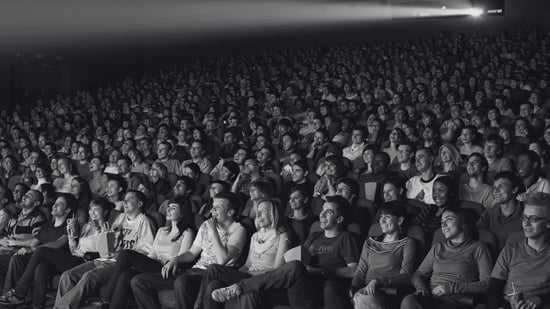Horror movies, known primarily for their spine-chilling scenes and suspenseful storylines, often incorporate elements of humor, but why? This seemingly paradoxical blend serves various purposes, from providing relief to enhancing the overall narrative impact. This article explores the role of humor in horror films, how it contributes to the viewer's experience, and the skillful balance filmmakers must achieve.
The Purpose of Humor in Horror Movies
Relief from Tension
One of the primary reasons humor is incorporated into horror movies is to provide relief from tension. Intense scenes that leave audiences on the edge of their seats are often punctuated with moments of humor to give a brief respite. This technique, known as "comic relief," helps manage the emotional intensity experienced by the viewer, preventing it from becoming overwhelming. Directors like Sam Raimi and Jordan Peele have mastered this art, strategically placing comedic moments that allow audiences to laugh, thereby releasing some of the built-up anxiety.
Humanizing Characters
Another critical role of humor in horror films is to add depth and relatability to the characters. When characters in perilous or absurd supernatural situations react with humor, it makes them more relatable and endearing. This humanization makes viewers care more about the characters' fates, enhancing the impact of the horror when those characters are threatened or harmed. Films like "An American Werewolf in London" and "Scream" exemplify how humor can make characters more likable and memorable, strengthening the emotional connection with the audience.
How Humor Enhances the Horror Experience
Building Connection with the Audience
Humor can act as a bridge that connects the audience more closely to the narrative. By breaking the fourth wall or making inside jokes that genre-savvy viewers will understand, filmmakers can create a complicity that pulls the audience deeper into the story. This connection makes the suspense and scares even more effective because viewers are more engaged and invested in what happens on the screen.
Contrasting the Horror Elements
By juxtaposing scares with jokes, horror movies can enhance the impact of both. The sudden shift from laughter to terror can make the horror elements more jarring and effective. This contrast can amplify the fear factor, as the relief provided by humor makes the subsequent return to horror even more startling. Movies like "Evil Dead II" and "The Cabin in the Woods" use humor to set up expectations that are suddenly subverted, making the horror elements unexpected and more impactful.
Balancing Horror and Humor: A Filmmaker's Challenge
Maintaining the Right Tone
Achieving the right balance between horror and humor is a delicate task. If a film leans too heavily into humor, it risks undermining the horror elements, potentially turning the movie into a parody of the genre. Conversely, if the humor is too sparse or falls flat, it can fail to provide the necessary relief, making the film overly grim. Directors like Edgar Wright and James Wan have demonstrated the ability to navigate this balance expertly, maintaining a tone that respects both the horror and comedy elements.
Timing and Placement of Humor
The timing and placement of comedic moments in a horror movie are crucial to their effectiveness. Humor used at the wrong time can detract from the suspense or emotional weight of a scene. Filmmakers must carefully consider when to introduce humor to enhance rather than dilute the tension. Strategic placement can elevate a scene, while poor timing can break the immersion and tension built up by the narrative.
Horror movies often include humor, not just as a mere addition but as an integral part of the narrative that enhances the emotional and psychological impact on the audience. By providing relief, enhancing character relatability, and building a stronger connection with the audience, humor serves multiple crucial functions in horror films. However, striking the right balance is key to ensuring that both the horror and the humor contribute effectively to the movie's success and audience enjoyment.
.png?width=150&height=84&name=Your%20Home%20for%20Horror%20(2).png)
.png?width=80&height=80&name=Horror%20film%20festival%20Halloween%20Logo%20in%20Black%20and%20White%20Red%20Elegant%20Style%20(7).png)
.png?width=200&height=200&name=Horror%20film%20festival%20Halloween%20Logo%20in%20Black%20and%20White%20Red%20Elegant%20Style%20(7).png)


